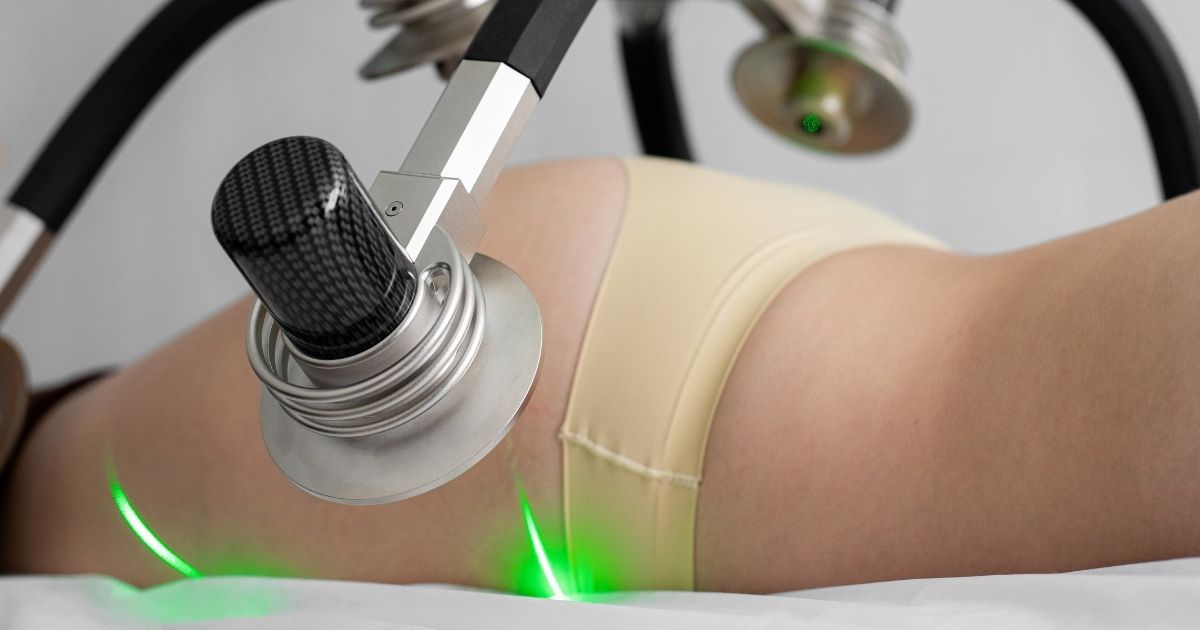When considering cosmetic body contouring procedures, many people wonder, “Is liposuction a permanent solution?” Although liposuction can remove fat cells permanently, it does not guarantee permanent weight loss or body contour stability. Understanding this can lead to realistic expectations and more satisfaction with the procedure’s outcomes.
Liposuction a Permanent Solution or a Temporary Fix
There’s a common belief that liposuction is a permanent solution for fat reduction and body contouring. However, it’s crucial to understand that while liposuction removes specific fat cells permanently, maintaining the new body contour requires a consistent, healthy lifestyle.
- The permanency of liposuction pertains to the removal of specific fat cells.
- Weight gain after surgery can compromise liposuction results.
- It’s not a one-time fix; maintaining a healthy lifestyle is key.
- Repeated liposuction surgeries can lead to increased risks and complications.
The Role of Lifestyle in Maintaining Liposuction Results

A healthy lifestyle plays a vital role in preserving the results of liposuction. Regular exercise and a balanced diet can prevent the remaining fat cells from enlarging, helping maintain improved body contour.
- Regular physical activity is recommended to maintain liposuction results.
- A balanced, nutrient-rich diet helps in preventing weight gain.
- Healthy lifestyle habits can significantly improve the longevity of liposuction outcomes.
- Mental wellness and stress management can also contribute to weight stability.
| Lifestyle Aspect | Importance | Recommendations |
| Balanced Diet | A balanced diet ensures you maintain a healthy weight post-liposuction, nourishing your body and skin. | Include in your diet plenty of fresh produce, lean proteins, and whole grains. Processed foods, sugary drinks, and excessive fat should be avoided. |
| Regular Exercise | Regular exercise helps maintain liposuction results by keeping your body toned and healthy. | During each week, exercise 150 minutes moderately or 75 minutes intensely. Include both cardio and strength training exercises. |
| Hydration | Healthy skin, elasticity, and weight management depend on hydration. | Ensure you drink eight glasses of water per day. More may be required during exercise or in hot weather. |
| Avoid Smoking | Smoking impairs the body’s healing ability and prematurely ages the skin. | Avoid smoking during recovery if you are a smoker. |
| Moderate Alcohol Intake | Excessive alcohol can contribute to weight gain and dehydration, affecting your liposuction results and skin health. | Follow the recommended guidelines for alcohol consumption, which recommend one drink for women and two for men per day. |
| Regular Check-ups | Regular check-ups can help monitor your progress and address any concerns promptly. | Schedule regular follow-ups with your surgeon or healthcare provider. |
| Stress Management | High-stress levels can lead to unhealthy coping mechanisms like overeating, impacting your results. | Incorporate stress management techniques into your lifestyle, such as yoga, meditation, or mindfulness. |
| Adequate Sleep | Adequate sleep is essential for overall health and recovery post-liposuction. | Aim for 7-9 hours of sleep per night. |
The Impact of Weight Changes After Liposuction
Weight changes following liposuction might negatively affect the procedure’s outcomes. If a person puts on a lot of weight, the fat cells still in their bodies may swell, which might change the liposuction-achieved improvement in body shape.
Book A Consultation With Dr Tarek Bayazid
Top-rated Plastic Surgeon For Liposuction in Dubai
Installment Plan Available
- Results after liposuction might be impacted by even a slight weight increase.
- Following liposuction, weight reduction may cause loose skin, compromising the cosmetic results.
- Uneven body shapes might come from rapid weight changes.
- For effects to last, weight stability following surgery is essential.
The Myth of Permanent Fat Removal with Liposuction

There are myths about liposuction in our society. While liposuction does involve the permanent removal of specific fat cells, it doesn’t equate to permanent weight loss or a cease in weight fluctuations. The body can still store and accumulate fat in the remaining cells, which can grow in size with weight gain.
- The permanency of liposuction pertains to the removal of specific fat cells, not overall weight stability.
- The remaining fat cells can grow larger with weight gain.
- Liposuction doesn’t prevent future fat accumulation.
- A misconception exists that liposuction can stop weight gain or fluctuations.
Liposuction’s Long-Term Efficacy and Limitations
Liposuction can significantly improve body contour and appearance. However, it has limitations and isn’t a cure-all for body weight and shape concerns. Understanding these limitations can help set realistic expectations for the procedure.
- Liposuction results are typically visible after the swelling subsides.
- It’s not a treatment for obesity or a proper diet and exercise substitute.
- Realistic expectations and an understanding of limitations are crucial for satisfaction with results.
- Liposuction might only suit some, depending on health conditions and personal goals.
See related: Which is better liposuction or kybella.
Can Liposuction Permanently Alter Body Composition?
While liposuction can permanently remove specific fat cells and improve body contours, it does not alter overall body composition. Maintaining a healthy lifestyle is necessary for body composition to revert due to weight gain.
- Liposuction primarily targets subcutaneous fat, not visceral fat.
- Changes to body composition are possible but not guaranteed.
- Muscle mass, bone density, and other factors contribute to body composition.
- Liposuction isn’t a solution for improving overall body composition without accompanying lifestyle changes.
The Role of Diet and Exercise After Liposuction
Post-liposuction, diet and exercise are vital to maintain the results. A balanced diet prevents excess calorie intake, while regular exercise helps burn calories and prevent fat accumulation, supporting long-lasting results.
- Nutrient-dense, balanced meals can help control weight post-procedure.
- Regular physical activity aids in maintaining muscle tone and preventing fat accumulation.
- Working with a dietitian or a personal trainer can be beneficial for personalised advice.
- Lifestyle modifications are a continuous commitment, not a temporary measure.
The Biological Mechanisms Affecting Liposuction Permanency
The biology of fat cells plays a significant role in the permanency of liposuction results. While the procedure removes specific fat cells, the remaining cells can expand with weight gain. This biological response can alter the results of liposuction over time.
- Fat cells removed during liposuction don’t regenerate.
- The remaining fat cells can enlarge with weight gain.
- Hormonal factors, genetics, and metabolism impact fat storage and distribution.
- Understanding the biology of fat cells can help manage expectations and lifestyle post-liposuction.
Steps to Maintain Your Liposuction Results for the Long Term
Maintaining liposuction results for the long term is possible with the right steps. These include a consistent exercise routine, a healthy diet, regular check-ups, and possibly working with fitness and nutritional professionals for personalised guidance.
- Consistent exercise and healthy eating habits are key.
- Regular check-ups and follow-ups with the surgeon can help track progress.
- Maintaining a stable weight post-surgery is crucial.
- Support from fitness and nutrition professionals can be beneficial.
- Weight management also depends on mental well-being and stress management.
Liposuction permanently removes fat cells but does not prevent future weight gain or maintain the body’s contours. A healthy lifestyle, balanced diet, and regular physical activity are crucial for preserving the results. Thus, liposuction’s durability heavily depends on the individual’s dedication to maintaining a healthy lifestyle after the surgery.
Consulting with a professional is recommended to understand what liposuction can achieve for you thoroughly. Dr Tarek Bayazid specialises in delivering comprehensive and personalised care.
Prepared to take the next step? Receive tailored advice from Dr Tarek Bayazid on liposuction and other aesthetic procedures. Don’t delay; book a consultation today and start your journey towards enhanced body contouring and self-confidence.











Related Posts